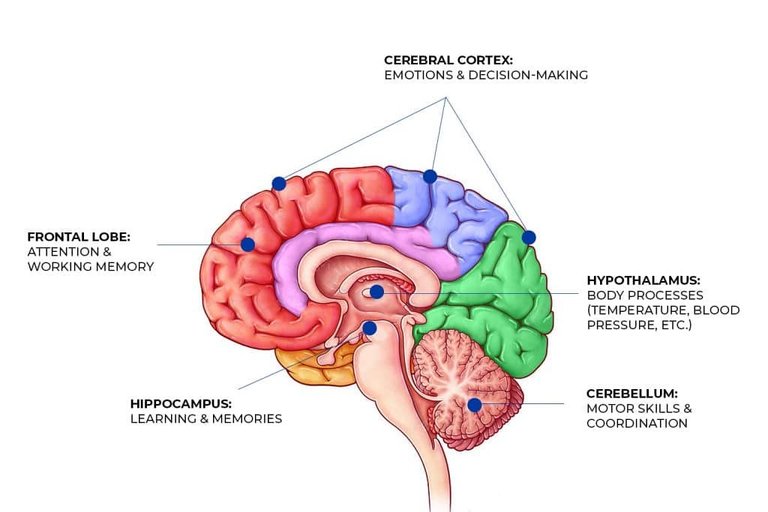Questions we usually ask ourselves when it comes to alcohol are; what does alcohol do to our liver, brain, and other parts of our body, and why does it cause those symptoms of intoxication in people that drink, and also, is there a safe amount of alcohol that can be taken? This and more will I be discussing in this post, so let's begin.
For clarification, the alcohol that we human take is Ethyl Alcohol or Ethanol and when we consume those beverages, it moves down the esophagus, and find its way to the stomach. In the stomach, some of the alcohol is absorbed through the stomach lining into the bloodstream and its rate of absorption is dependent on the content of the stomach. Alcohol is absorbed faster on an empty stomach than on a full stomach. For instance, if the stomach contains fat or protein then the alcohol will be absorbed slowly and it will also slow down gastric emptying to the small intestine.
In the small intestine, majority of the alcohol is absorbed into the bloodstream where it finds its way to the liver. The liver is tasked with the job of detoxing the body and when it gets to the liver through the hepatic portal vein and the alcohol move into the liver cells (hepatocytes) so they can be metabolized. In the liver, alcohol is converted to Acetaldehyde though the enzyme alcohol dehydrogenase, and the co-actor NAD+. Let me state that acetaldehyde is more toxic than alcohol and plays a huge role in some negative impact that alcohol has on the body but then the liver doesn't leave this toxic conversion, it converts the acetaldehyde to acetate using aldehyde dehydrogenase.
Acetate can then be utilized as energy but not all the alcohol will be metabolized by the liver immediately it enters into the bloodstream and some will circulate throughout the body before they now go to the liver. Some alcohol will be excreted through the lungs, and the sweat gland, but in all they begin to enter into the cells including the brain cells.
In the brain, the brain can get to the prefrontal cortex (PFC). The PreFrontal Cortex is involved in activities like Reasoning, Thinking, Planning, judgement, and Impulse Control. When people take alcohol and the PreFrontal Cortex is affected, people tend to do what they would not do normally when they are not intoxicated. Asides from the prefrontal cortex, the Hippocampus is also affected. The hippocampus is responsible for short term memory storage and that is one reason why alcohol affects memory in the short term as well as blackout.
Still in the brain, the cerebellum is also affected by alcohol. The cerebellum is responsible for coordination, and motor function but that is not all because it also affects anti-diuretic hormone secreted from the pituitary gland, suppressing it which is why people who take alcohol urinate a lot. The medulla Oblongata in the brainstem can also be suppressed but this really happens during alcohol poisoning. The medulla oblongata is responsible or breathing, heart rate, and reflexes like vomiting and gag reflex.
Understanding how alcohol interacts with our body's organs and systems provides valuable insights into the complexities of its effects. While moderate alcohol consumption may not necessarily lead to severe consequences, it's crucial to recognize the potential risks associated with excessive drinking and its impact on our physical and mental well-being.
Reference
https://www.dcceew.gov.au/environment
https://www.ncbi.nlm.nih.gov/pmc/articles/PMC3484320/
https://www.bgsu.edu/recwell/wellness-connection/alcohol-education/alcohol-metabolism.html
https://www.nidirect.gov.uk/articles/what-happens-when-you-drink-alcohol
https://alcoholrehabhelp.org/knowledge/drinking-on-empty-stomach/
https://sites.duke.edu/apep/module-1-gender-matters
https://www.ncbi.nlm.nih.gov/pmc/articles/PMC9312216/
https://www.ncbi.nlm.nih.gov/pmc/articles/PMC3593065/
https://www.ncbi.nlm.nih.gov/pmc/articles/PMC6668891/
https://www.ncbi.nlm.nih.gov/pmc/articles/PMC6875723/
https://www.ncbi.nlm.nih.gov/pmc/articles/PMC4492805/


